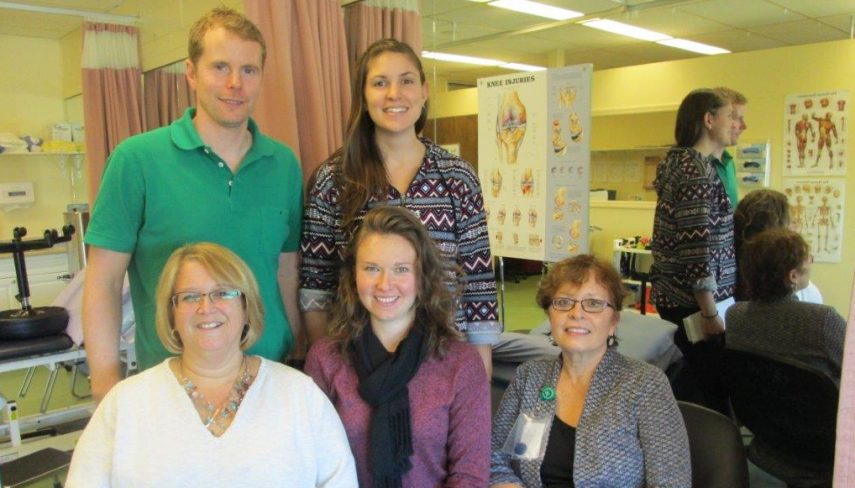- 2017
|
- Runner-Up
|
- Living with Illness or Disability
This award was formally named “Living with Illness”. Our Excellence in Quality category names changed in 2020 to reflect the updates to our BC Health Quality Matrix. Visit our Categories and Criteria page to find out more.
The Prince Rupert Interprofessional Student-led Model (PRISM) Clinic provides underserved rural and remote communities in British Columbia with access to continuous and high-quality primary care.
As students in physical therapy, occupational therapy, and rehabilitation assistant programs complete clinical education in a rural primary care setting, they give timely, integrated, and patient-centred care to the communities of Prince Rupert, Port Edward, Lax Kw’alaams, Hartley Bay, Metlakatla, and Gingolx.
People living in northwestern British Columbia have the lowest-rated health status in the province. Chronic disease rates are as high as 34%, rates of traumatic injury are above the provincial average, and there are more hospital admissions than elsewhere in BC. Unfortunately, these regions also face consistent shortages of PTs and OTs: while 15% of British Columbians live in rural areas, only 5% of OTs and 7% of PTs work in rural and remote communities.
These shortages led to gaps in care and lengthy wait times for patients who are often the most in need of integrated, timely health services. To address these gaps, Northern Health and the UBC Department of Physical Therapy teamed up to develop an innovative clinical service delivery model. Since November 2013, the PRISM Clinic has cared for patients with musculoskeletal and neurological conditions, and has had a specific role in the management and treatment of individuals with multi-system, complex chronic diseases such as congestive heart failure, hypertension, chronic pulmonary conditions, arthritis, diabetes, and depression.
With the PRISM model, OTs and PTs students follow the patient through the continuum of care, resulting in seamless primary care. The clinic provides team-based rehabilitation services, one-to-one patient assessments and treatments, group education sessions, group medical visits with other health professionals for chronic disease management, and community home care visits. They have also designed a new referral process that better reflects the importance of identifying risk factors and determinants of health. The Clinic also serves as an opportunity to establish early collaborative responsibility in students by immersing them in an interprofessional environment.
In order to provide culturally-safe care to First Nations patients, all students are oriented by a First Nations Liaison worker at the beginning of their placement. Students are also provided with opportunities to travel to nearby First Nations communities to provide care and deepen their understanding of the unique challenges face by community members.
With a regular flow of students working at the PRISM Clinic for 5 to 10 weeks at a time, Prince Rupert Rehab Medicine Services has been able to increase patient access to rehab care, which is limited by recruitment challenges and the paucity of rehab professionals in the region. Depending on the patients’ needs and goals, they can now be seen in the community, in their homes, in the hospital, or as outpatients. Feedback from patients has been wholeheartedly positive, with 81% rating their experience 10 out of 10. Waitlist management has also been significantly improved, especially for those with chronic conditions.
The PRISM Clinic has quickly become a vital opportunity for people seeking rehab care in Prince Rupert and its surrounding communities. It provides high quality access to rehab services and an invaluable learning experience for the students who complete clinical placements there.


